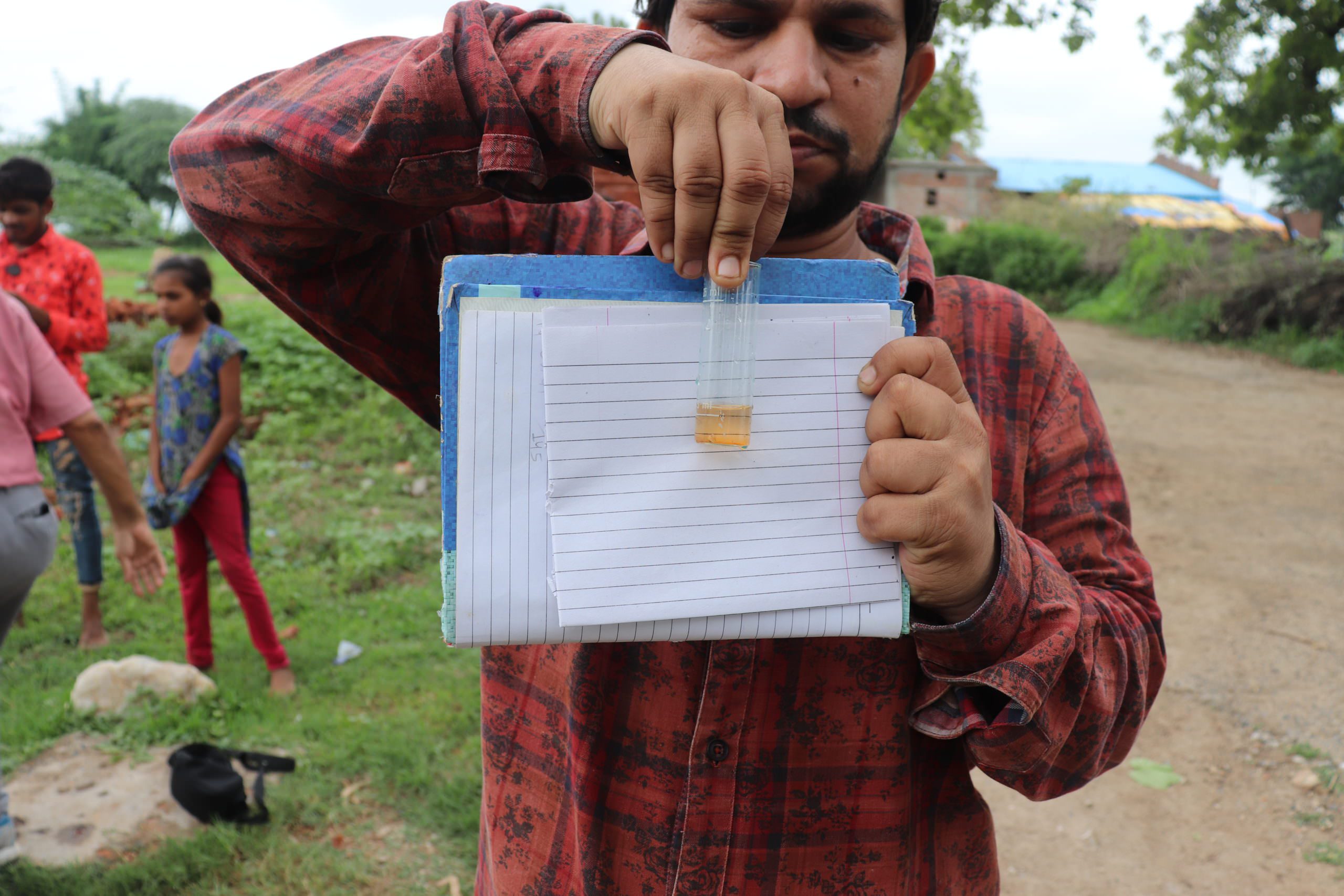Defluoridation of Water

This project focused on the development of affordable technology to remove excess fluoride in drinking water for rural communities in India, where there is a dearth of access to even very basic resources, like proper nutrition, education, and clean drinking water.
The team investigated bauxite ore — the raw material for producing alumina and aluminum — as a potential sustainable fluoride removal method with lower material, energy, and carbon costs.
Principal Investigator
Ashok Gadgil, Andrew and Virginia Rudd Family Foundation Chair Professor of Safe Water and Sanitation, UC Berkeley; Senior Faculty Scientist, Lawrence Berkeley National Laboratory
The project worked on the development of novel defluoridation technology that would be locally sourced, highly effective, robust in a rural setting, and required minimal manpower for operation and maintenance.
About the Project
Over 200 million people in 25 countries drink groundwater contaminated with fluoride concentrations that exceed the World Health Organization’s recommended level. In India, over 66 million people face the risk of developing fluorosis, which, at its most severe, can result in severely stunted, abnormal growth, and damaged joints and bones. India is also home to large bauxite deposits, and mildly-processed bauxite has been observed to bring fluoride concentrations to safe levels in contaminated groundwater. Fluoride removal with bauxite ore is substantially less expensive than the current practice of activated alumina, suggesting that the use of bauxite can tremendously improve access to safe water in impoverished, rural, fluoride-affected communities.
Although many defluoridation technologies have been proven to be effective in labs, few have been distributed in the field, and even fewer appear to be sustainable long-term. A technology may not be appropriate for remote rural areas if it is labor intensive, difficult to scale up at the community level, cost-prohibitive, difficult to source locally, culturally inappropriate (ex. bone char), or unreliable (ex. dilution through rainwater harvesting).
This project investigated the use of minimally processed bauxite ore as an inexpensive way to treat fluoride-contaminated groundwater in resource-constrained areas, providing a new, effective way to improve water quality and human health. In doing so, the project contributed to the knowledge on the development of safe water systems in low-income regions.
The project activities were terminated prematurely due to restrictions on fieldwork imposed by the COVID-19 pandemic in 2020–21.
Collaborators: Sattva Consulting; India Natural Resource Economics and Management (INREM) Foundation
